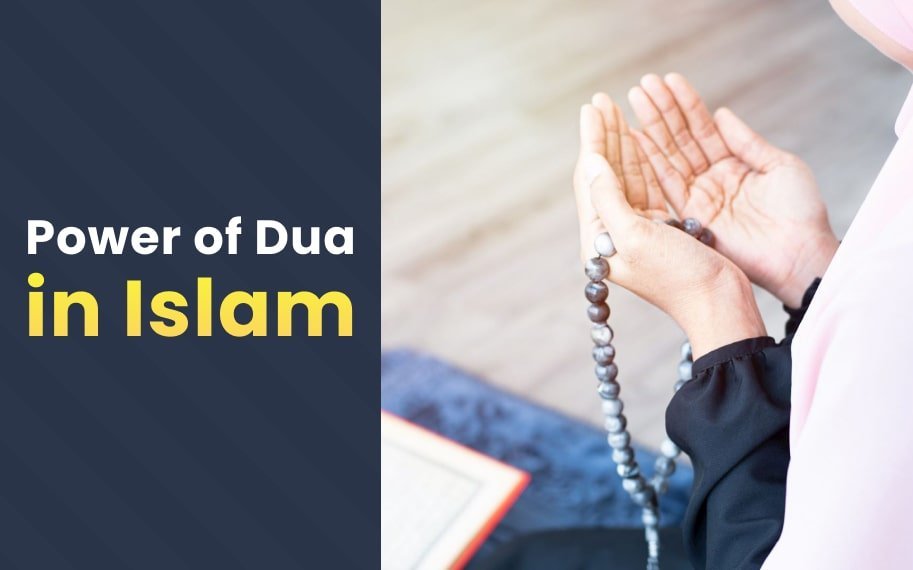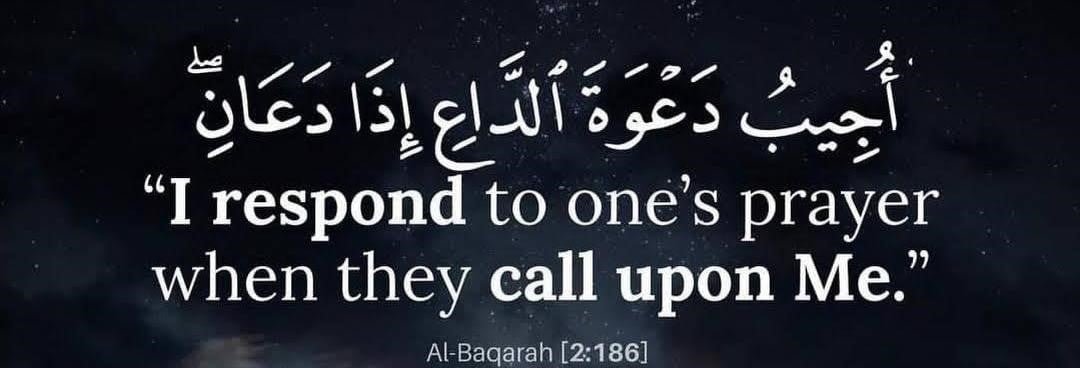
Dua, the act of supplication and earnestly asking Allah for help, is a fundamental aspect of Islamic worship. It is a powerful and transformative practice that holds great significance in the lives of Muslims worldwide. The term “Dua” itself translates to “calling” or “invocation,” emphasizing the direct communication between a believer and the Creator. In Islam, Dua is not merely a ritualistic act but a profound connection between the worshipper and Allah, reflecting the essence of faith, trust, and humility.
Table of Contents
The Concept of Dua in Islam
The concept of Dua is deeply embedded in the teachings of Islam, with numerous references in the Quran and the sayings of Prophet Muhammad (peace be upon him). The Quran describes Allah as the Most Merciful, the Most Compassionate, and the All-Knowing, encouraging believers to turn to Him in times of need. The Prophet Muhammad (peace be upon him) emphasized the importance of Dua in various hadiths, highlighting its role as a key element in the practice of faith.
Verses from the Quran such as “And your Lord is the Forgiving, Full of Mercy. If He were to impose blame upon them for what they earned, He would have hastened for them the punishment. But for them is an appointment from which they will never find an escape.” (Quran 18:58) underscores the compassionate nature of Allah, inviting believers to seek forgiveness, guidance, and blessings through supplication.
The Power of Dua in Daily Life
- Connection with Allah: Dua serves as a means for believers to establish a direct and intimate connection with Allah. It is a conversation that allows individuals to express their deepest desires, concerns, and gratitude to the Creator.
- Hope and Trust: Engaging in Dua instills hope and trust in the mercy of Allah. It reminds believers that no matter the circumstances, Allah is always ready to respond to their pleas with kindness and compassion.
- Guidance and Wisdom: Dua is not limited to seeking material needs but extends to seeking guidance and wisdom. Muslims turn to Allah for help in making decisions, overcoming challenges, and navigating the complexities of life.
- Healing and Protection: Dua is a source of healing and protection. Muslims seek Allah’s intervention for physical, emotional, and spiritual well-being, recognizing that ultimate healing comes from the Divine.
- Gratitude and Acknowledgment: While Dua is often associated with seeking assistance, it also serves as a means of expressing gratitude and acknowledging the blessings bestowed upon believers. Gratefulness is an integral aspect of a believer’s relationship with Allah.

The Etiquette of Making Dua
While the act of supplication is encouraged in Islam, there are etiquettes and manners that believers are encouraged to observe when making Dua:
Begin with Praise for Allah: Commence your Dua by praising Allah and acknowledging His greatness. Express gratitude and humility, recognizing His divine attributes.
Face the Qiblah (If Possible): Though not obligatory, facing the Qiblah during Dua symbolizes unity and submission to Allah’s will. It is a practice that aligns the supplicant’s heart in the right direction.
Raise Your Hands: While not mandatory, raising your hands during Dua, especially during specific moments, signifies earnest supplication. It is a physical manifestation of humility and dependence on Allah.
Be Sincere and Humble: Approach Dua with a genuine heart, recognizing your dependency on Allah. Express your requests with sincerity, humility, and a deep sense of neediness before the Creator.
Use Comprehensive Language: While specifying needs is allowed, using comprehensive language in Dua is encouraged. Pray not only for personal well-being but also for the welfare of your family, the Muslim community, and humanity at large.
Pray for Others: In addition to personal requests, include prayers for the well-being of others. The Prophet Muhammad (peace be upon him) emphasized the importance of supplicating for your fellow believers.
Repeat and Persist: The Prophet encouraged believers to repeat their supplications, demonstrating persistence and a strong desire for Allah’s response.
Be Patient and Content: Understand that Allah responds in His wisdom and timing. Exercise patience and contentment, trusting that Allah knows what is best for you.
Include Repentance and Seeking Forgiveness: Incorporate repentance and seeking forgiveness into your Dua. Admitting mistakes and seeking Allah’s forgiveness adds depth to supplication.
The Blessed Times for Dua
In Islam, while believers are encouraged to engage in supplication (Dua) at all times, there are certain moments and occasions considered particularly auspicious for making prayers. These blessed times hold special significance, and the Prophet Muhammad (peace be upon him) has guided when these moments occur.
Here are some of the blessed times for Dua in Islam:
- In the depths of the night
- Between the Azan and the Iqamah
- Between Asar and Maghrib on Fridays
- Between two khutbahs of a Friday prayer
- During Sujud in a prayer
- While drinking the Zamzam water.
- During Ramadan—especially before breaking fast, on the last ten days, and the Laylat al-Qadr (Night of Power)
- At times of adversity
- While performing hajj, on the first ten days of Zulhijjah and the day of Arafah
Summary
The power of Dua in Islam transcends the boundaries of time and circumstance, providing solace, guidance, and strength to believers. It is a dynamic and personal relationship with Allah, embodying the essence of faith, trust, and humility. Muslims are encouraged to make Dua in all aspects of their lives, recognizing that Allah is the All-Hearing, the All-Knowing, and the Most Merciful. As believers continue to turn to Allah through the practice of Dua, they find a source of comfort, hope, and divine intervention in life’s challenges and joys.
FAQs
Q1: What is Dua in Islam?
A1: Dua in Islam refers to the act of supplication, where believers earnestly and humbly communicate with Allah. It is a form of prayer in which Muslims seek guidance, blessings, forgiveness, and assistance in various aspects of life.
Q2: Why is Dua important in Islam?
A2: Dua is essential in Islam as it symbolizes a direct connection between the believer and Allah. It reflects faith, trust, and humility, allowing Muslims to seek help, guidance, and blessings from the Most Merciful and Compassionate.
Q3: Can Dua change destiny in Islam?
A3: According to Islamic belief, while destiny is ultimately determined by Allah, Dua has the power to influence outcomes. It is a means through which believers seek Allah’s intervention, mercy, and blessings, and it can potentially alter the course of events.
Q4: Are there specific times when Dua is more likely to be accepted?
A4: Yes, there are several blessed times mentioned in Islamic teachings when Dua is more likely to be accepted. These include the last third of the night, during prostration (sujood), between the call to prayer (Azan) and the commencement of the prayer (Iqamah), on Fridays, while it’s raining, during the last part of Friday, and while fasting, especially during the month of Ramadan.
Q5: How should one make Dua in Islam?
A5: The etiquette of making Dua in Islam includes starting with praise for Allah, being sincere and humble, persisting in supplication, choosing appropriate times, and praying for both personal and collective well-being. It is encouraged to make Dua in one’s language, with sincerity, and with the belief that Allah hears and responds.
Q6: Can one make Dua for anything in Islam?
A6: Yes, Muslims are encouraged to make Dua for a wide range of matters, including personal needs, forgiveness, guidance, health, and general well-being. However, it is important to align one’s requests with Islamic principles and to avoid asking for anything sinful or harmful.
Q7: Does Allah always answer Dua in Islam?
A7: While Allah promises to respond to the supplications of believers, the manner and timing of the response are in His wisdom. Sometimes the answer may be immediate, delayed, or manifested in ways not immediately apparent. Believers are encouraged to have patience and trust in Allah’s divine plan.
Q8: Can Dua protect against harm in Islam?
A8: Yes, Dua is believed to be a powerful means of seeking protection against harm in Islam. Muslims can ask Allah for protection from physical, emotional, and spiritual difficulties, recognizing that ultimate safeguarding comes from the Divine.
Q9: Is there a specific format for making Dua in Islam?
A9: While there is no strict format, it is recommended to begin with praising Allah, sending blessings upon Prophet Muhammad (peace be upon him), and then expressing one’s needs and desires. Believers are encouraged to use their own words, be sincere, and show humility in their supplications.
Read Also
Etiquette of Drinking & Eating in Islam
12 Scientific Facts in the Holy Quran
Marriage in Islam – All You Need to Know
Women’s Rights in Islam – A Comprehensive Overview
The Role of the Quran in Spiritual Development

